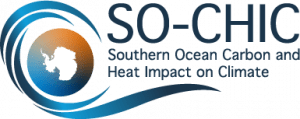Questo sito web utilizza i cookie per potervi offrire la migliore esperienza d'uso possibile. Le informazioni contenute nei cookie vengono memorizzate nel browser dell'utente e svolgono funzioni quali il riconoscimento dell'utente quando torna sul nostro sito web e l'aiuto al nostro team per capire quali sezioni del sito web sono più interessanti e utili per l'utente.

Partner Presentation
The AWI is a member of the Helmholtz Association of German Research Centres (HGF), the largest science organisation in Germany. With a staff of more than 1000 employees, about half of them scientists at levels between graduate students and full professors, AWI conducts multidisciplinary research mainly in the Arctic and Antarctic. AWI was established as a public foundation in 1980 and includes the headquarters in Bremerhaven, and four further research units in Germany. It has an annual budget of more than 100 million Euro. AWI has a coordinating function, offers advice and consultancy, and provides special services. Responsibilities include biological monitoring, providing scientific-technical support for German and international polar research, and updating the German federal government on research results and giving advice for development of environmental policies.
AWI keeps up an extensive cooperation with numerous national and international institutions. Through memberships, the AWI is embedded in a number of European Research initiatives, such as the European Polar Board (EPB), the European Marine Board (EMB), and the European Climate Research Alliance (ECRA). It also contributes to a variety of international research programmes and projects like the European Multidisciplinary Seafloor Observatory (EMSO), the Integrated Carbon Observation System (ICOS; PI Hoppema being AWI representative), Partnership for Observation of the Global Oceans (POGO) and the Earth System Science Partnership (ESSP). Recently for the external review of the AWIwide research program the institute became the grade “outstanding”.
Role in project
AWI contributes to three work packages, WP1 on air-sea fluxes (M. Hoppema, WP co-leader), WP3 on deep ocean ventilation pathways (T. Kanzow; O. Boebel) and WP6 on decadal variability of heat and carbon storage (T. Kanzow, WP co-leader; O. Boebel; M. Hoppema). Our contribution is to conduct new measurements of the partial pressure of CO2, couple them with existing data and analyse those for the seasonal cycle. New and existing time series data of heat and salinity from the Weddell Sea shelf and slope regions will be collated and analysed for dense water formation and water mass modification on the shelf and export down the slope. An integrative analysis of the annual budget of excess heat and carbon will be produced for the Atlantic sector of the Southern Ocean.
Key Personnel

Dr. Mario Hoppema
Senior scientist in marine biogeochemistry

Prof. Dr. Torsten Kanzow
Head of the section Physical Oceanography of the Polar Seas

Olaf Boebel
Senior scientist in physical oceanography and ocean acoustics

